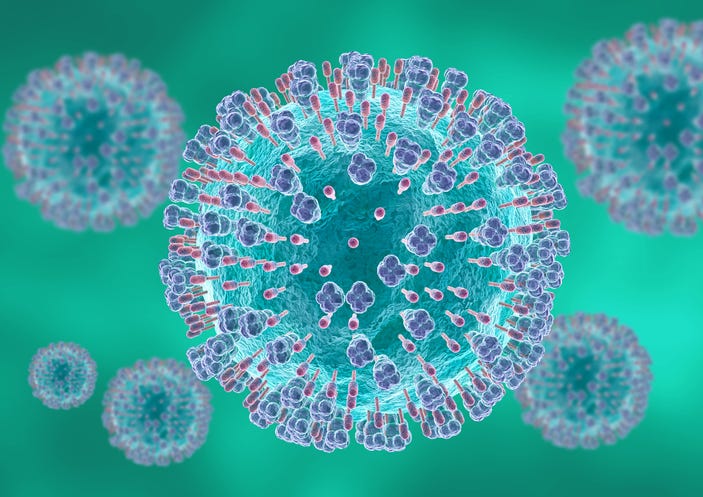
Cases of respiratory syncytial virus (RSV) are spiking in the Southeastern U.S., according to an advisory issued Tuesday by the U.S. Centers for Disease Control and Prevention.
With this increase in cases, the CDC encouraged clinicians to prepare for the upcoming RSV season. Cases of the virus in the U.S. usually surge in the fall to a winter peak, but “the timing and severity of RSV season in a given community can vary from year to year.”
Preparations for RSV season include stocking monoclonal antibody treatments such as nirsevimab, which is expected to become available early next month. There are also vaccines available for older adults age 60 and older.
RSV is one of the most common childhood illnesses, according to the centers. While it can lead to hospitalization in infants and the elderly, it can also lead to less severe illness in other age groups.
Symptoms of RSV infection include: runny nose, decrease in appetite, coughing, sneezing, fever and wheezing. It spreads primarily through respiratory droplets when infected persons cough, though it can also spread via contaminated surfaces.
The recent increase in the Southeastern U.S. suggests “a continued shift toward seasonal RSV trends observed prior to the COVID-19 pandemic,” per the CDC. Continued increases in RSV activity are expected to spread north and west over the following two to three months, as the surge has started in Florida and spread from there in recent years.
During the phase of the COVID-19 pandemic that included mitigation measures, the typical RSV season was interrupted. By 2021, there was an atypical season with a May onset that peaked in July and August before continuing through the end of the year. Last year, activity began in the summer and peaked slightly earlier than pre-pandemic years, in October and November.
As the latest RSV season begins, the CDC recommends that expectant parents and parents of infants should discuss preventative measures with their healthcare providers.
“Infants under the age of 8 months should receive preventive antibodies to protect against RSV this season,” said the CDC.
Additionally, adults age 60 and older should discuss RSV vaccination with their healthcare provider. For people who become infected with RSV, the CDC recommends staying home and contacting their healthcare providers.
Follow KNX News 97.1 FM
Twitter | Facebook | Instagram | TikTok
